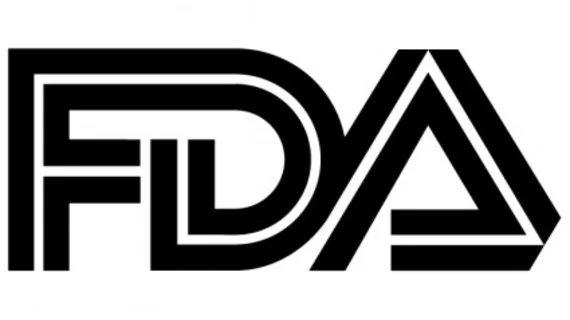Reversal agent for Factor Xa inhibitors receives accelerated approval from FDA
The FDA has approved the use of Andexxa, the first reversal agent for Factor Xa inhibitors, drug manufacturer Portola Pharmaceuticals announced May 3.
Factor Xa inhibitors are growing in popularity due to their ability to prevent and treat thromboembolism, but those drugs are also associated with a risk of bleeding events. According to Portola’s press release, there were approximately 117,000 U.S. hospitalizations for Factor Xa-related bleeding in 2016 and nearly 2,000 deaths per month.
Andexxa received U.S. orphan drug and FDA breakthrough therapy designations after it was shown to change baseline anti-Factor Xa activity in healthy volunteers. The drug is now indicated as an antidote for rivaroxaban and apixaban when reversal of anticoagulation is needed due to life-threatening or uncontrolled bleeding.
“Today’s approval represents a significant step forward in patient care and one that the medical community has been eagerly anticipating,” Stuart J. Connolly, MD, the chair of an ongoing study of the product, said in the release. “Andexxa’s rapid reversal of the anticoagulating effects of rivaroxaban and apixaban will help clinicians treat life-threatening bleeds, where every minute counts.”
Results from two phase 3 studies showed the antidote reversed anti-Factor Xa activity by 97 percent for rivaroxaban and 92 percent for apixaban in healthy volunteers. Interim data from a single-arm trial of 185 patients with major bleeding showed reductions in anti-Factor Xa activity by 90 percent for rivaroxaban and 93 percent for apixaban.
According to the release, a post-marketing, randomized trial is scheduled to begin in 2019 and conclude in 2023. This study will evaluate the use of Andexxa versus usual care, in which clinicians will treat patients as if the antidote weren’t available.
“The expansion of available reversal agents for people prescribed newer oral anticoagulant therapies is crucial,” said Randy Fenninger, CEO of the National Blood Clot Alliance, a patient-led, voluntary health advocacy organization. “The availability now of a reversal agent specific to rivaroxaban and apixaban expands choice and enables patients and providers to consider these treatment options with greater confidence.”

